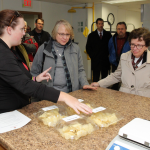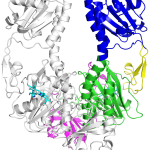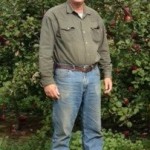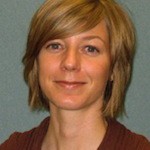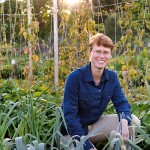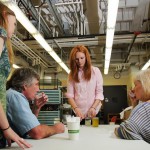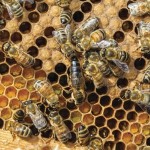Tag College of Agricultural and Life Sciences
Dairy science in spotlight as field advances
Dairy science is no longer the field of straw hats and bib overalls. The UW’s future is as thoroughly milk-soaked as its past.
New technology could help food crops thrive in crowded fields
With the global population expected to reach 9 billion by 2050, the world's farmers are going to need to produce a lot more food - but without using much more farmland, as the vast majority of the world's arable land is already being used for agriculture.
WARF Innovation Award winners offer a better oat, infection disrupter
A new oat offering tasty ways to lower cholesterol and compounds capable of disrupting serious bacterial infections earned top honors in this year's Wisconsin Alumni Research Foundation Innovation Awards program.
Growth industry: New faculty member supports local produce
When Julie Dawson starts making farm visits, she may face a problem many of her fellow University of Wisconsin–Madison agricultural extension specialists don’t: battling city traffic and finding a place to park.
UW’s bug-eating advocate had global impact
When Gene DeFoliart had his brainstorm in 1974, not even he thought his brainchild would be an easy sell. As a professor at the University of Wisconsin–Madison, DeFoliart was focusing on how insects spread viral disease. Now he was captivated by an opposite proposition: using insects to foster human health — using them, to be specific, as food.
Looking before you leap, failing fast, and the path to commercialization of technology
The QuickChip sounded like a killer idea: a gadget about one inch square that could, in just 15 minutes, identify bacteria, fungi, and viruses at a patient's bedside. Instead of sending samples to a lab and waiting hours or days, physicians would know immediately what they were dealing with and how best to treat it.
UW scientist sniffs out possible new tick species
In June 2012, Tony Goldberg returned from one of his frequent trips to Kibale National Park, an almost 500-square-mile forest in western Uganda where he studies how infectious diseases spread and evolve in the wild. But he didn’t return alone.
UW-Madison alumnus wins major award for exploring chemistry of the nervous system
Richard Scheller, who graduated from the University of Wisconsin–Madison with a B.S. in biochemistry in 1974, has shared the 2013 Albert Lasker Award for Basic Medical Research for work explaining how messenger chemicals move between nerve cells.
Tasty Solution: Better beverages for people who have trouble swallowing
After having a stroke in 2008, Jan Blume lost the ability to swallow for two full years. As she slowly regained that vital function, she faced a new challenge: drinking the thickened beverages that are recommended for people with swallowing problems, or dysphagia. She found the drinks almost intolerable.
Survey examines opinions about Wisconsin’s first managed wolf hunt
Many Wisconsin residents supported the state's decision to initiate the first managed wolf hunt in state history from October through December 2012, but support varied significantly between people who lived inside wolf range and those who did not, a new University of Wisconsin–Madison study indicates.
Unprecedented genome editing control in flies promises insight into human development, disease
In an era of widespread genetic sequencing, the ability to edit and alter an organism's DNA is a powerful way to explore the information within and how it guides biological function.
Protecting our Pollinators
Bees, so crucial to our food supply, are dying off at alarming rates. CALS researchers are taking a close look at everything from the microbes in their hives to the landscapes they live in to identify in what conditions bees thrive.
Researchers look to natural sources for organic meat preservatives
When Jeff Sindelar talks about the ingredients he's working with, you'd think he was making juice. Not quite. He's adding things like cranberry concentrate, cherry powder, lemon extract and celery powder to meat.
Industry helps create new potato breeding professorship
Advances in biotechnology such as DNA sequencing have helped speed the pace of plant breeding in many food crops, but applying these tools to the potato, which has an extra set of chromosomes, has been a bit more difficult.


